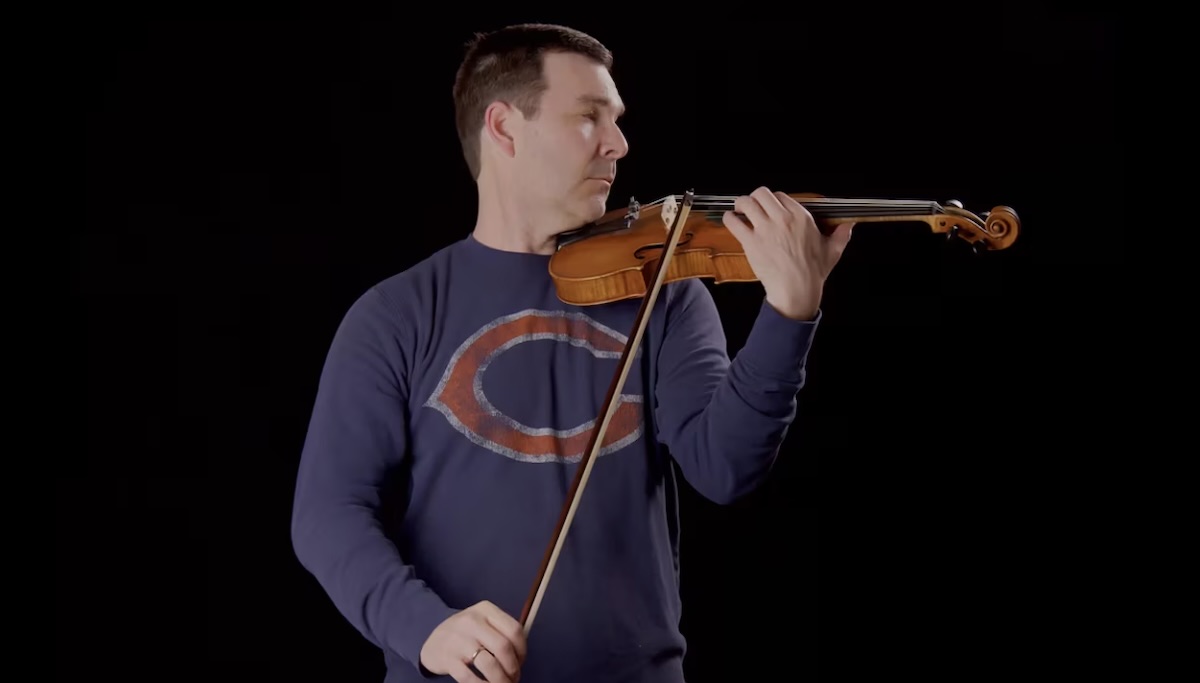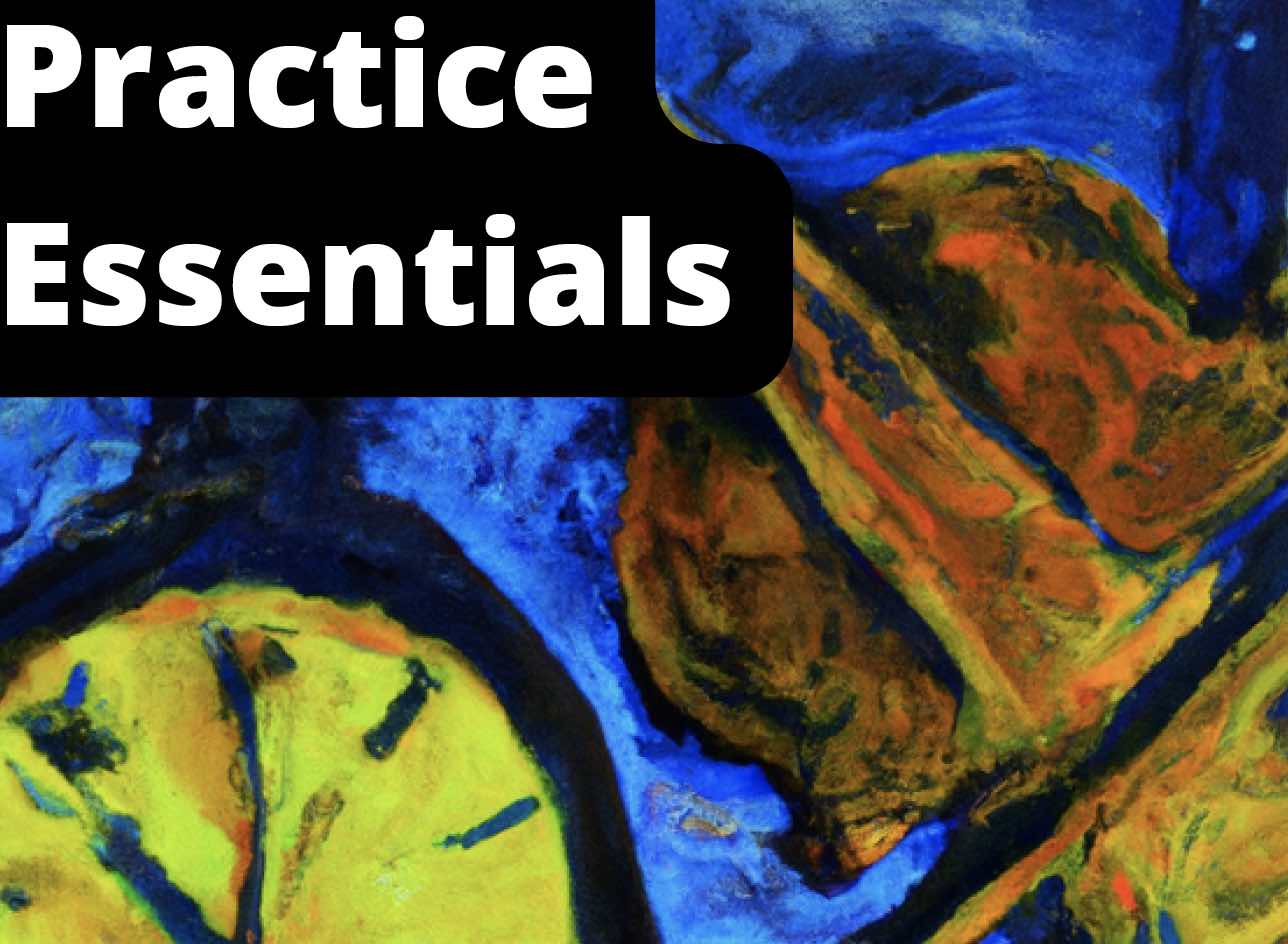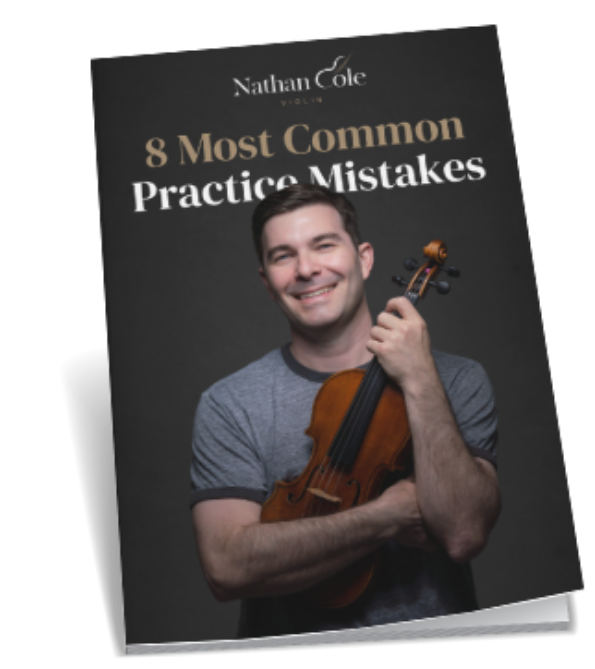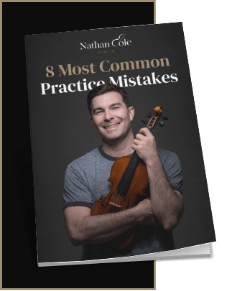How do you keep all your excerpts alive?
One of my readers asked an excellent question about auditions in the forums, and I wanted to give my thoughts here as well. Once you learn an entire list (no easy task!) how do you maintain it? How do you juggle all those chainsaws without dropping any? There are as many ways to do it as there are to, well, juggle chainsaws… actually, maybe there’s only one good way to do that! But there are definitely good strategies to use. Here’s what I wrote:
A great question and a big topic! I go into this somewhat in my Audition Timetable lesson, so first check that out if you haven’t.
My thinking on this changes over time, but in general I’ll say that my more successful auditions have come when I had the material well in hand long before the audition. Even better is when I’m not learning the material for the first time! Now that doesn’t help you if you have a lot of new stuff on a list, because you ARE learning it for the first time! But then it’s even more important to have it learned (meaning you’ve basically settled on bowings, fingerings, and can play it up to tempo) around a month in advance.
Why is this? It’s so you can taper and not be playing all the material every day, which answers another part of your question. It’s just too draining to get through all that music in all those styles every day for two months of prep. You feel constrained and your playing shows it. You need the freedom to step away from your concerto, say, for a few days and to come back with fresh ideas. Same with all the other excerpts.
The way it works for me now, I’m required on a semi-regular basis to demonstrate most of these excerpts. So they’re never too far out of my fingers. I would expect to be able to play any of them reasonably well “out of nowhere”, although my fingers would always appreciate a refresher! The pathways have been trod so many times, so to speak. That’s important for folks to remember: in the case of Don Juan, for example, I’ve prepared it probably 20 times over the course of 15 years, and performed it under pressure in auditions and concerts many more times than that. You can’t compare that to preparing it for your first or second audition.
So what can you do if you can’t take 10 auditions to prepare for this next audition? 🙂 Again, get it ready early so that you can perform it under pressure a few times before the audition. Mock auditions for friends, making a recording for yourself at a certain day and time, etc. The solos are easier because you can program them on a recital, at churches, nursing homes, etc.
Then your timetable may look like this: One month before, all material collected, marked, up to tempo. Separate the excerpts into two “lists”, A and B, making sure each list has a mix of styles. For one week, alternate days working on A and B, saving time during each day for a straight “run” of the list you’re working on. Make sure the run isn’t always at the end of the day. Spend this time also marking the toughest passages in your concertos and treating them as excerpts. You can mix them into the two lists. Be sure that the concerto openings always appear on the lists. Make at least one recording of a run of each list and make notes.
Three weeks before, remix the lists so that you still have A and B but it’s a different mix. Step away from the concertos this week, except for listening to recordings and studying the full scores. Play list A for someone, and list B for someone else. Make sure to set an exact day and time so that it’s an occasion. Record the playthroughs.
Two weeks before, make it your goal that by the end of the week, you can easily play all the material in a day, including the full concerto movement(s). You should feel good starting any excerpt after any other excerpt. You can now combine the lists so that there’s just one. Pick no more than 5 excerpts to work on in depth each day, and simply run the rest. Play a mock audition where the person (or people) listening call out excerpts for you to play. Record this.
One week before, focus on the opening of the audition, likely your concertos. Make sure your sound quality comes out first and foremost, in all dynamics. Record the opening(s) and see that you’re putting across a clear idea. For the excerpts, rehearse your “choreography”: how you start each one from a resting position. You need to get a clear idea of the sound/character/tempo of each excerpt within about five seconds, from rest position to putting the bow to the string. This last week, you get comfortable with that timing. You don’t need to play for anyone else or do more recording. Run the list of excerpts each day, but not necessarily all in a row. Concerto movements don’t need to be played straight through in their entirety.
Well, that’s how I do it! A mix of planning and carving out the time. 3-5 hours a day of quality practice for about 6 weeks. Have any of you tried some of these strategies already?
Comment section
1 thought on “How do you keep all your excerpts alive?”
Leave a Reply

Scales: The Road
to Repertoire
Even if you’ve never played a scale before, violinist Nathan Cole of the Los Angeles Philharmonic will guide you through scale routines that meet you where you are, and build progressively alongside your playing.








Hello Nathan,
I find all the info you share incredibly helpful. To be honest, I’ve been starving for this kind of information and feel lucky to have come across it starting last week! Finally, answers to my many whys & hows. – everything clearly, calmly and thoughtfully explained. Also love the wide range of topics you cover
You mention a reference to your “Audition Timetable lesson”, but I was unable to find it. Maybe it’s no longer available? In the meantime, I’m busy practicing Schradieck, Kreutzer #9 & ordered the Dont book (which I’m ashamed to say, I didn’t own… no teacher of mine had ever asked for it).
Anyway, thanks again for all this fantastic and helpful info you take the time to share – a goldmine of knowledge & experience! Very inspiring!